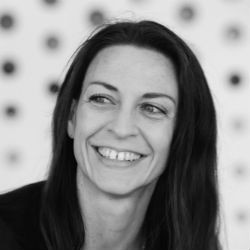Politicians Want Progress on Unemployment and Homelessness? Change the Discussion
9 June 2016 at 10:23 am
Australian Not for Profits are continuing to push the agendas on meaningful social issues like unemployment and homelessness despite another election campaign week littered with trivial distractions, writes Sara Bice, socio-political commentator from the Melbourne School of Government at the University of Melbourne in a series of articles leading up to 2 July.
In the election campaign so far this week the incumbent leader played to sentimentalist notions of single parenthood and rode the nth wave of feminism while the challenger petted a rat and sought to drag gender roles out of the prehistoric cave where he momentarily left them on Monday.
Amid these distractions – and admittedly the throwback to Abbot-style ironing board comments was disappointing – Australia’s Not for Profits continued to push agendas on meaningful social issues, especially youth unemployment and housing.
A Launch Housing-commissioned report released earlier this week found that homelessness, housing affordability and living costs rank highly amongst voters’ most important concerns. The report was released in a week where NFPs and social services in South Australia gathered under the auspices of the Anti-Poverty Network SA to push a campaign for 80,000 extra jobs in the state.
The pinpointing of voters’ concerns and actions like those of the Anti-Poverty Network are underpinned by a need to shift the political debate on these issues. Australia has a long history of blame in the welfare state, and of language that suggests those who are without a job or a home are simply not working hard enough.
If we are to advance social welfare on these issues, an attitudinal shift is required, one which pushes the conversation from one of finger-pointing to one of action: opening new jobs, providing better support services and creating a broader variety of roles which constitute an engaged and inclusive social and work life.
But there is a long way to go in this campaign if language and attitudes on these issues are to shift. Even the recent government report on the McClure Review of Australia’s social welfare system, A New System for Better Employment and Social Outcomes, perpetuates the notion of deserving and undeserving members of Australian society. Recent University of Melbourne research by Emma Gee suggests that these ideas remain prominent in the final report, despite public submissions and Not for Profit groups attempting to shift attitudes away from this dichotomy of “lifters and leaners” towards one of capabilities and investment.
Creative policy responses like Finland’s soon-to-be-implemented universal basic income could offer a feasible alternative to the current $3 billion investment in administering Centrelink, at least one expert suggests. But Australia’s current debate and policy environment on employment, affordability and related issues of homelessness and welfare services only exacerbates the daily difficulties of the working poor and leaves little space for innovation.
At least one Melbourne-based NFP, HoMIE (Homeless of Melbourne Incorporated Enterprise), is aiming to change this debate. Since 2014, the group has initiated a number of events aimed at helping the public to donate to homeless people more easily and to make the acceptance of goods more dignified. A major part of this process occurs through HoMIE’s commitment to sharing conversations, putting an equal voice to the homeless experience and encouraging others to get involved.
It is actions like these that will be critical come election day. Voters need not only policies, but a critical lenses through which to view them. NFPs remind us that there are more to these stories than lifters and leaners. In a similar vein, the Melbourne School of Government will host its second Public Interactive Learning Lab on the topic of youth unemployment on Monday, 20 June. The university is also aiming to progress the debate from one of blame to understanding through involving the community in a discussion with experts who have dedicated their careers to working on the issue.
About a month out from election day, pollsters and pundits say it’s still too close to call and criticise both sides for playing it safe on tough issues. As World Vision chief Tim Costello illustrated in The Age’s Tuesday election commentary on campaign funding, addressing glaring contradictions between funding sources, corporate tax law and treatment of refugees and the vulnerable would be a start. Maybe next week.
About the author: Sara Bice (PhD) is director of research translation, Melbourne School of Government at the University of Melbourne. With a decade of experience assisting private firms, Not for Profits and government agencies to plan and advance their sustainable development agendas, Bice’s career is committed to creating shared value for communities and companies through evidence-based decision-making, risk management and strong stakeholder engagement.
(Photo of Sara Bice is courtesy of Adam Hollingworth.)






